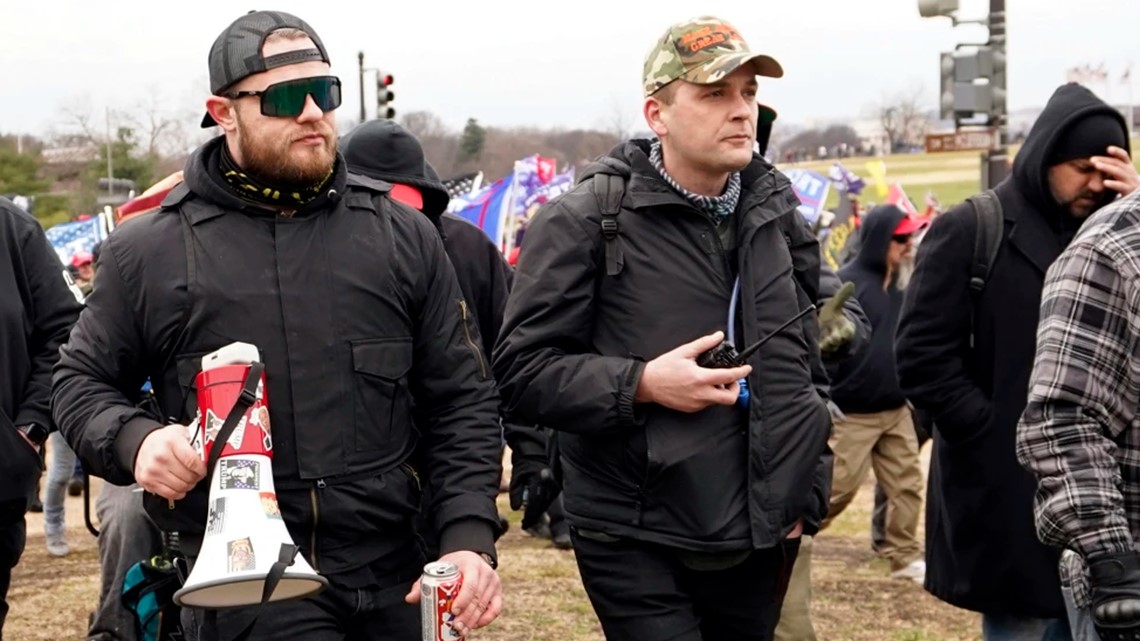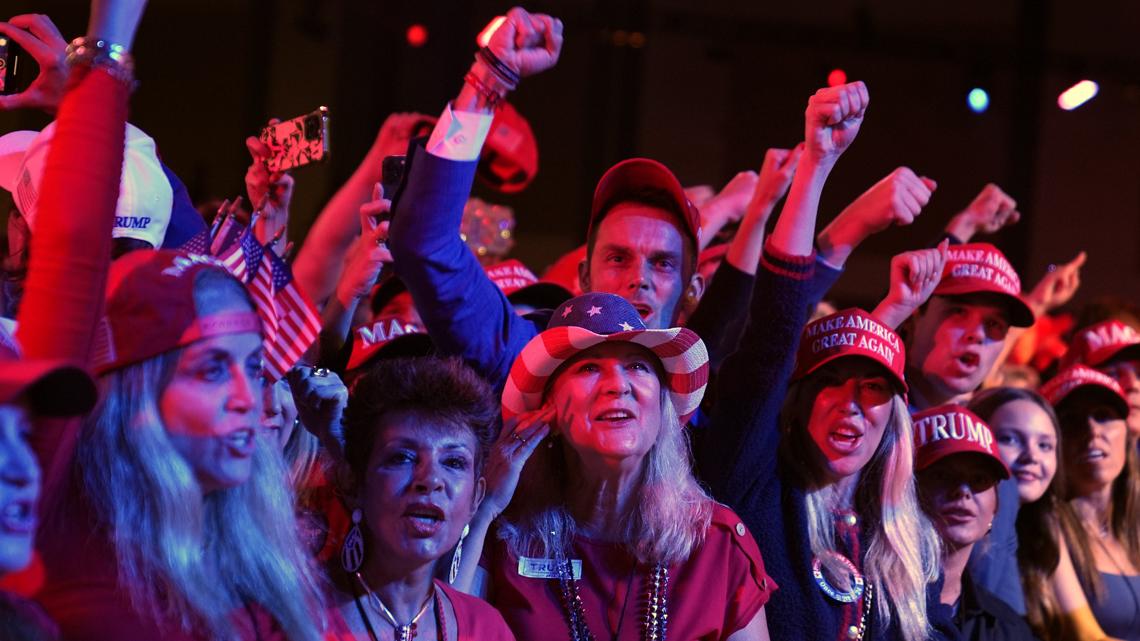The Justice Department told jurors the Proud Boys organized their Ministry of Self-Defense to be a "violent gang" in service of the former president.
WASHINGTON — The Proud Boys responded to a rallying cry from former President Donald Trump by forming themselves into a “violent gang” ready to use violence to keep him in power, federal prosecutors said Monday during closing arguments in the trial of five members of the group.
Trump’s comment during a 2020 presidential debate that the Proud Boys should “stand back and stand by” energized the group, which saw it as a “call to arms” according to former North Carolina member Jeremy Bertino. On Monday, Assistant U.S. Attorney Conor Mulroe, giving the government’s closing argument, focused on another of Trump’s statements: a Dec. 19 tweet calling for supporters to come to D.C. on Jan. 6 and promising “will be wild.”
Within 24 hours, Mulroe said, the Proud Boys’ new Ministry of Self-Defense (MOSD) chat was up and running. The MOSD chat eventually became a key organizing tool for the group’s presence in D.C. on Jan. 6.
“You want to call this a drinking club? You want to call this a men’s fraternal organization. Let’s call this what it is. The Ministry of Self-Defense was a violent gang that came together to use force against its enemies,” Mulroe said. “It was all about force. It wasn’t to prevent violence. It was to channel it. Or, in Enrique Tarrio’s words, to ‘harness these rally boys in real numbers.’”
The government’s closing arguments Monday capped off more than four months of the longest Jan. 6 trial to date. The five defendants in the case – former Proud Boys chairman Enrique Tarrio, Ethan “Rufio Panman” Nordean, Joe Biggs, Zachary Rehl and Dominic “Spazzo” Pezzola – are accused of seditious conspiracy and multiple other felony charges for allegedly plotting to incite the violence at the U.S. Capitol.
Many of the key witnesses in the trial were Proud Boys themselves, including Bertino – who pleaded guilty to seditious conspiracy last year and who described the group as the “tip of the spear” on Jan. 6. Pezzola and Rehl also both decided to take the stand. Both men denied any knowledge of a plan or any part in a conspiracy to attack the Capitol. Pezzola, who used a police riot shield to create the first breach of the Capitol, went so far as to blame police for inflaming the mob.
As prosecutors did during three previous Oath Keepers trials, Mulroe repeatedly told jurors they need not find evidence of a written plan or agreement to convict the Proud Boys defendants of seditious conspiracy.
“A conspiracy is nothing more than an agreement with an unlawful objective,” Mulroe said.


The Justice Department spent weeks showing jurors the increasingly belligerent rhetoric of Proud Boys, including the defendants, in the wake of Trump’s loss in the 2020 election. Mulroe said that showed their intent. He focused in particular on comments by Biggs, a U.S. Army veteran and former Infowars employee who some Proud Boys elders wanted Tarrio to disavow, Mulroe said. But Tarrio declined.
“What you have here is Joe Biggs stating, and Enrique Tarrio agreeing, that the Proud Boys were a fighting force lined up behind Donald Trump and ready to commit violence on his behalf,” Mulroe said.
By the time Jan. 6 arrived, Mulroe said, the Proud Boys had been “thirsting for violence and organizing for action.” They showed up in D.C. and gathered and at the Washington Monument before heading straight to the Capitol – without even making a “head fake” toward the Trump speech happening at the same time, he said.
“For these defendants, politics was no longer something for the debating floor or the voting booth. For them, politics meant actual, physical combat. A battle between good and evil in the most literal sense,” Mulroe said. “That’s what politics meant for them: a contest of force. And they liked it. And they were good at it.”
If convicted of the most serious charges against them, the Proud Boys could face years in prison and, in the cases of Pezzola, Biggs and Rehl, potentially the loss of military benefits from their service. To date, 10 people have been convicted at trial or pleaded guilty to seditious conspiracy in connection to Jan. 6. The first two convicted by a jury, Stewart Rhodes and Kelly Meggs, were scheduled to be sentenced on May 25.
We're tracking all of the arrests, charges and investigations into the January 6 assault on the Capitol. Sign up for our Capitol Breach Newsletter here so that you never miss an update.
.png)









 English (US) ·
English (US) ·